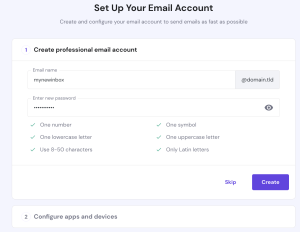How to Improve Your Website’s Google Ranking: A Comprehensive Guide Achieving a high Google ranking is crucial for increasing your website’s visibility and driving organic traffic. With millions of websites competing for attention, it’s essential to employ effective strategies to improve your ranking. In this guide, we’ll explore actionable tips and techniques to help you climb the ranks and reach more users.
1. Conduct Keyword Research
Keywords are the foundation of your SEO strategy. Use tools like Google Keyword Planner, SEMrush, or Ahrefs to identify relevant keywords with high search volume and low competition. Incorporate these keywords naturally into your content, including titles, headers, and meta descriptions.
Also Read: Dallas Semi Truck Accident Attorney in Complex Trucking Cases
2. Optimize On-Page Elements
Optimize your website’s on-page elements, including titles, meta descriptions, headers, and URLs. Ensure that each page has a unique title and meta description that accurately describe its content. Use descriptive headers (H1, H2, H3, etc.) to structure your content and make it easier for search engines to understand.
3. Create High-Quality Content
Content is king in the world of SEO. Create informative, engaging, and valuable content that addresses the needs and interests of your target audience. Use a mix of text, images, and videos to make your content more engaging and shareable.
4. Improve Page Speed
Page speed is a critical factor in Google’s ranking algorithm. Use tools like Google PageSpeed Insights to analyze your website’s performance and identify areas for improvement. Optimize your images, minify CSS and JavaScript files, and leverage browser caching to improve your site’s loading speed.
5. Build Quality Backlinks
Backlinks are links from other websites that point to your site. They are a crucial ranking factor for Google. Focus on building high-quality backlinks from authoritative websites in your industry. You can do this by creating valuable content that other websites want to link to, reaching out to relevant websites for guest posting opportunities, and participating in industry forums and communities.
6. Use Schema Markup
Schema markup is a form of microdata that helps search engines understand the content of your website better. Implementing schema markup can improve your website’s visibility in search results and increase the likelihood of your content being featured in rich snippets.
7. Monitor and Analyze Your Results
Monitor your website’s performance using tools like Google Analytics and Google Search Console. Track your rankings for target keywords, monitor organic traffic, and analyze user behavior on your site. Use this data to identify areas for improvement and refine your SEO strategy.
Also Read: Dallas 18-Wheeler Accident Law Firm: Seeking Justice and Compensation
Improving your website’s Google ranking requires time, effort, and ongoing optimization. By following these tips and staying updated with the latest SEO trends, you can enhance your website’s visibility and drive more organic traffic.
Achieving a high Google ranking is crucial for increasing your website’s visibility and driving organic traffic. With millions of websites competing for attention, it’s essential to employ effective strategies to improve your ranking. In this guide, we’ll explore actionable tips and techniques to help you climb the ranks and reach more users.
1. Conduct Keyword Research
Keywords are the foundation of your SEO strategy. Use tools like Google Keyword Planner, SEMrush, or Ahrefs to identify relevant keywords with high search volume and low competition. Incorporate these keywords naturally into your content, including titles, headers, and meta descriptions.
2. Optimize On-Page Elements
Optimize your website’s on-page elements, including titles, meta descriptions, headers, and URLs. Ensure that each page has a unique title and meta description that accurately describe its content. Use descriptive headers (H1, H2, H3, etc.) to structure your content and make it easier for search engines to understand.

3. Create High-Quality Content
Content is king in the world of SEO. Create informative, engaging, and valuable content that addresses the needs and interests of your target audience. Use a mix of text, images, and videos to make your content more engaging and shareable.
4. Improve Page Speed
Page speed is a critical factor in Google’s ranking algorithm. Use tools like Google PageSpeed Insights to analyze your website’s performance and identify areas for improvement. Optimize your images, minify CSS and JavaScript files, and leverage browser caching to improve your site’s loading speed.
5. Build Quality Backlinks
Backlinks are links from other websites that point to your site. They are a crucial ranking factor for Google. Focus on building high-quality backlinks from authoritative websites in your industry. You can do this by creating valuable content that other websites want to link to, reaching out to relevant websites for guest posting opportunities, and participating in industry forums and communities.
6. Use Schema Markup
Schema markup is a form of microdata that helps search engines understand the content of your website better. Implementing schema markup can improve your website’s visibility in search results and increase the likelihood of your content being featured in rich snippets.
7. Monitor and Analyze Your Results
Monitor your website’s performance using tools like Google Analytics and Google Search Console. Track your rankings for target keywords, monitor organic traffic, and analyze user behavior on your site. Use this data to identify areas for improvement and refine your SEO strategy.
Improving your website’s Google ranking requires time, effort, and ongoing optimization. By following these tips and staying updated with the latest SEO trends, you can enhance your website’s visibility and drive more organic traffic.




